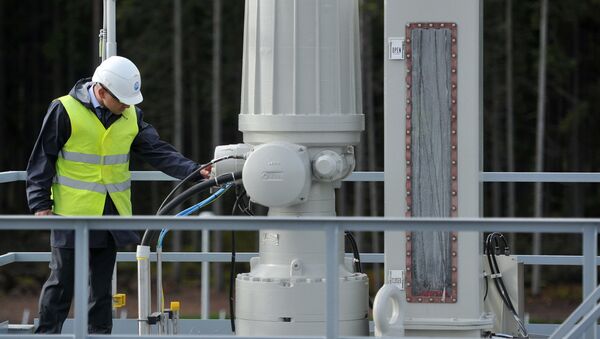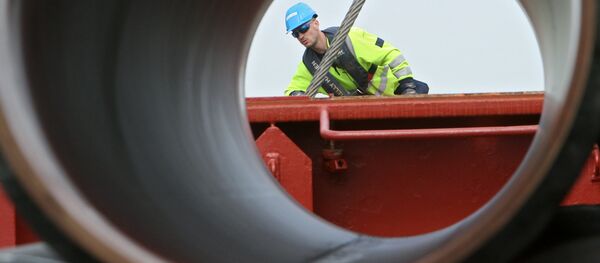MOSCOW (Sputnik) — Earlier in the day, Sefcovic met with Russian Deputy Prime Minister Arkady Dvorkovich and Energy Minister Alexander Novak in Moscow. The officials discussed a number of cooperation issues, including gas transit via Ukraine.
"Currently, we have three routes which supply the gas from Russia to Central and Western Europe, this is Nord Stream 1, this is Yamal and biggest transit route is actually the Ukrainian one. We have strong interest in preserving all three of them," Sevcovic told reporters after the meeting with the Russian officials.
Russia and some EU partners have been seeking to build the Nord Stream 2 gas pipeline to further reduce dependence on transit via Ukraine. The pipeline is planned for 2018. It aims to deliver up to 55 billion cubic meters of natural gas from Russia to Germany annually via the Baltic Sea. Russian energy giant Gazprom has a shareholder agreement to extend the existing Nord Stream with partner European energy firms.


